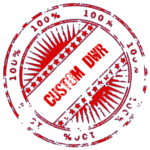Web Resume – Objective and Summary Statements
Most employers do not read objective statements. Ninety-five percent of the employers who contributed to this guide recommended that you do not use an objective. However, when discussing objective statements, employers agreed that if you use one, make it direct and to the point. Not too broad yet not too narrow. Everyone wants a challenging position which utilizes their skills. This is not an appropriate objective statement. Stating the occupation you are seeking and being industry specific is more effective.
Some Examples of Objective Statements
Objective: To obtain a position as a legal secretary in real estate law.
Objective: Seeking an administrative/managerial position in a non-profit offering opportunity for professional growth.
Objective: To obtain a materials management position in a dynamic high-technology manufacturing company.
Objective: An individual contributor as a systems/analyst/programmer in commercial data processing environment.
Read More!!!


